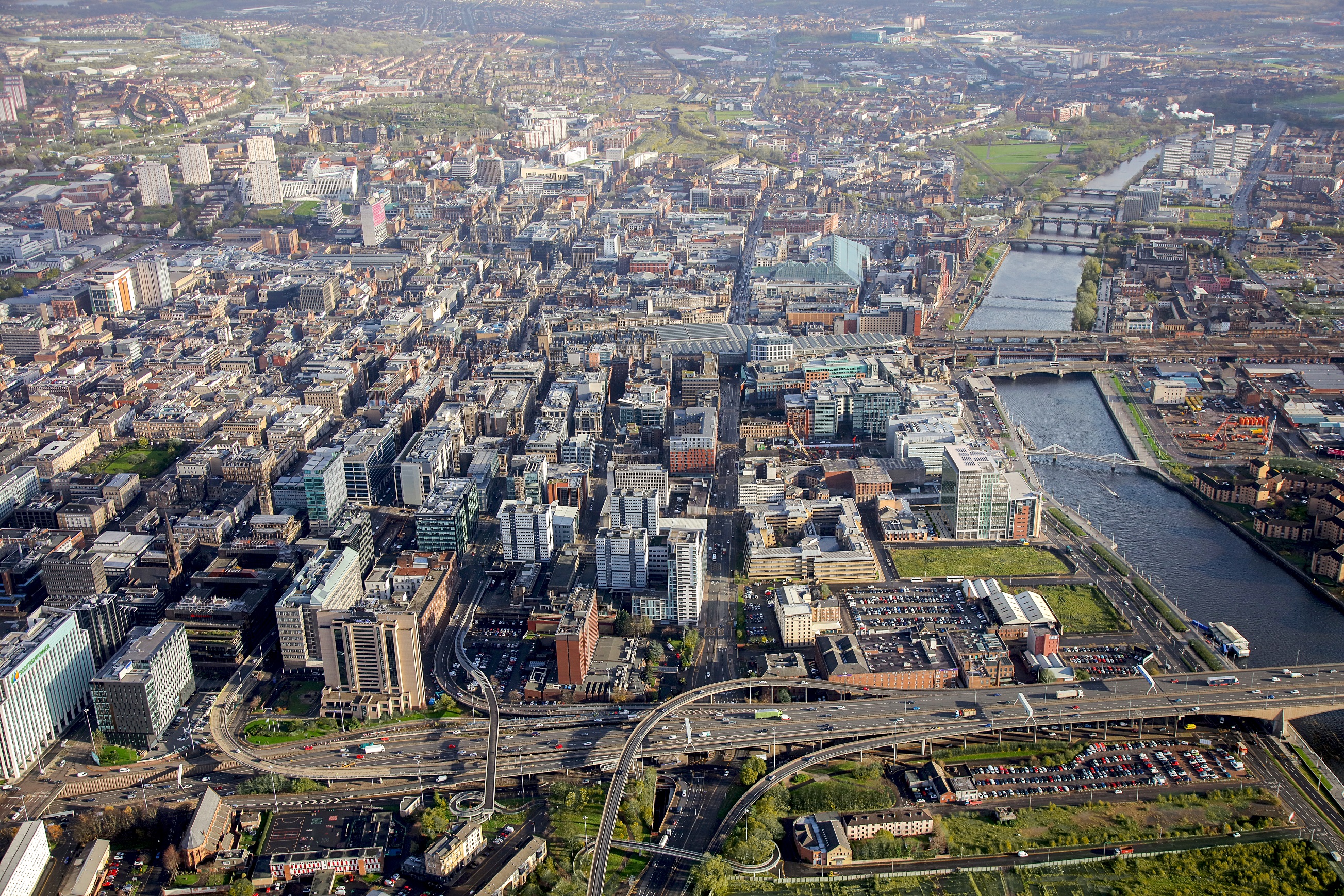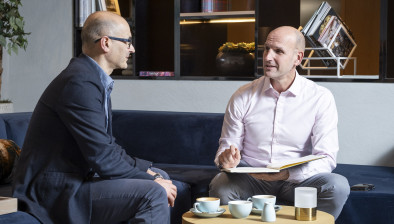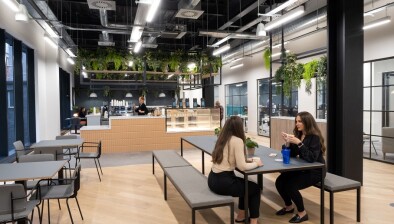Report considers repurposing of Glasgow city centre buildings

A report into how the repurposing of buildings in Glasgow city centre could help in the area’s recovery after the pandemic was presented to a Glasgow City Council committee this week.
The report refers to an evidence base from recent research - supported by Scottish Government recovery funding - into the impact of the pandemic on the property and economy of Glasgow city centre, and this evidence will guide future strategy and action in these areas.
This is an important piece of research because the impact on the pandemic was more severe on Glasgow city centre than on other Scottish cities due to the extended and deep Covid restrictions, and its characteristics of a relatively small residential population, a reliance on a regional travel to work population, more hybrid working and the effects of an economic crisis, Brexit and the war in Ukraine.
Combined, these factors have led to both reduced footfall and visitor spend as business costs have increased. To illustrate the economic impact of this, the pre-pandemic economic activity figure for the city centre was expected to be over £9.2 billion – as a result of the pandemic, the actual figure was £8.27bn.
The latest data on the performance of the business sector in the city centre shows that overall footfall is 19% lower than pre-covid, but with weekend and evening footfall up by 11% and 18%, while weekly and lunchtime footfall – while recovering – is at 84% of pre-covid levels.
Other impacts in the sector include rising energy and business costs; difficulties in recruiting and retaining staff; office vacancy rates up to 14%; and challenges around night-time economy transport provision.
In addition, the impacts of the pandemic have also caused an acceleration in shifts in the demand for, and supply of property. Investors and occupiers of office space now seek high-quality, flexible and sustainable space, causing a significant amount of privately-owned commercial property in the city centre to be no longer fit for purpose, and the repurposing of such space is now key to the area’s recovery.
Research into the use of city centre property suggests that there is a general need for smaller, higher quality, more agile offices; SMEs require affordable multi-occupied increased managed centres; more than 400 pre-1960 office spaces are seen as obsolete and are prime sites for conversion / repurposing; the conversion / repurposing of upper floors for residential use only results in small-scale outcomes (average of 10 units) and does not achieve the large scale outcomes required to deal with the legacy of redundant office property; declining rents in the retail and leisure sectors; with engagement responses indicating worries over the continued impact of online shopping, the need to accelerate adaptation and diversification and greening, hotels and hospitality have high fixed costs and reduced demand, and space is required for the city’s growing technology and innovation sectors.
The recommendations of the research report into city centre property mean that - as some matters are outwith the control of the council - the support and participation of the Scottish and UK Governments is needed. A particular issue identified in the research is the future use of the upper floors of Victorian and Georgian buildings in the city centre, the cost and complexity of their repurposing being added to by conservation area and listed building considerations.
Other key findings from this research include the need to incentivise development / disincentivise long-term empty properties and sites; deliver affordable housing and support the creative economy; support for the removal of technical, practical and fiscal barriers to refurbishment and repurposing to allow this happen at scale; and considering how best to matchmake developers with end users/building opportunities.
The council will now continue to work with the Governments and other city partners to develop an action plan - to be fed into the new City Centre Strategy - to be delivered over the next two years.
Councillor Angus Millar, convener for City Centre Recovery at Glasgow City Council, said: “The research into the challenges and opportunities facing the city centre underlines the need to consider what must be done to make it a thriving, sustainable place - and looking at how properties once used for retailing or commerce can be made into homes and other types of uses is just one course of action. We will work with partners to ensure that all steps open to us are taken to make the changes necessary to create a city centre that is attractive as possible a place in which to work, live, study, invest and visit. The council will now engage with key stakeholders to respond to this evidence base and outline our aspirations for property repurposing in the new year.”
Stuart Patrick, chief executive of the Glasgow Chamber of Commerce, added: “This is an important step towards Glasgow’s recovery from the pandemic. Our city centre has gone through a rapid transformation in the last few years and this report highlights the challenges we face but also the huge opportunities available when it comes to reshaping. Specifically, the report identifies clear objectives in helping our recovery which are achievable and can be implemented immediately.
“Issues such as bringing older units which are no longer fit for purpose back into active use, helping the city meet targets for growing its residential population and working in partnership with developers to maximise the opportunity of catalytic developments, including existing proposals for Buchanan Galleries and St Enoch Centre, are all plans which we at Glasgow Chamber of Commerce fully support.
“The quality of these reports and the strategic direction upon which it wants to take the city centre forward should be welcomed and supported by all levels of Government as we look to grow and redevelop what Glasgow City Centre can offer its businesses, residents and visitors.”
The research report into city centre property was carried out by Ryden, while the research report into the city centre economy was carried out by Stantec. Both of these specialist reports were commissioned by the Glasgow Chamber of Commerce on behalf of the council.














